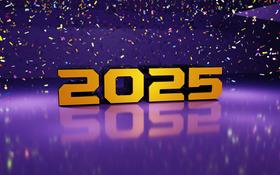For the 2025-26 school year, there are 7 public schools serving 4,424 students in Belmont, MA (there are , serving 952 private students). 82% of all K-12 students in Belmont, MA are educated in public schools (compared to the MA state average of 88%). Belmont has one of the highest concentrations of top ranked public schools in Massachusetts.
The top ranked public schools in Belmont, MA are Belmont High School, Mary Lee Burbank and Winn Brook. Overall testing rank is based on a school's combined math and reading proficiency test score ranking.
Belmont, MA public schools have an average math proficiency score of 80% (versus the Massachusetts public school average of 43%), and reading proficiency score of 76% (versus the 45% statewide average). Schools in Belmont have an average ranking of 10/10, which is in the top 1% of Massachusetts public schools.
Minority enrollment is 42% of the student body (majority Asian), which is less than the Massachusetts public school average of 47% (majority Hispanic).
Best Public Schools in Belmont, MA (2025-26)
School
(Math and Reading Proficiency)
(Math and Reading Proficiency)
Location
Quick Facts
Rank: #11.
Belmont High School
(Math: 87% | Reading: 86%)
Rank:
Rank:
10/
Top 1%10
221 Concord Avenue
Belmont, MA 02478
(617) 993-5901
Belmont, MA 02478
(617) 993-5901
Gr: 9-12 | 1,462 student Student-teacher ratio: 18:1 Minority enrollment: 39%
Rank: #22.
Mary Lee Burbank
(Math: 80-84% | Reading: 85-89%)
Rank:
Rank:
10/
Top 1%10
266 School Street
Belmont, MA 02478
(617) 993-5500
Belmont, MA 02478
(617) 993-5500
Gr: K-4 | 322 students Student-teacher ratio: 13:1 Minority enrollment: 39%
Rank: #33.
Winn Brook
(Math: 85-89% | Reading: 75-79%)
Rank:
Rank:
10/
Top 5%10
97 Waterhouse Rd
Belmont, MA 02478
(617) 993-5700
Belmont, MA 02478
(617) 993-5700
Gr: K-4 | 418 students Student-teacher ratio: 14:1 Minority enrollment: 46%
Rank: #44.
Winthrop L Chenery Middle School
(Math: 79% | Reading: 75%)
Rank:
Rank:
10/
Top 5%10
95 Washington Street
Belmont, MA 02478
(617) 993-5800
Belmont, MA 02478
(617) 993-5800
Gr: 5-6 | 713 students Student-teacher ratio: 15:1 Minority enrollment: 41%
Rank: #55.
Daniel Butler
(Math: 70-74% | Reading: 70-74%)
Rank:
Rank:
10/
Top 10%10
90 White Street
Belmont, MA 02478
(617) 993-5550
Belmont, MA 02478
(617) 993-5550
Gr: K-4 | 321 students Student-teacher ratio: 12:1 Minority enrollment: 55%
Rank: #66.
Roger E Wellington
(Math: 68% | Reading: 60-64%)
Rank:
Rank:
9/
Top 20%10
121 Orchard Street
Belmont, MA 02478
(617) 993-5600
Belmont, MA 02478
(617) 993-5600
Gr: PK-4 | 522 students Student-teacher ratio: 15:1 Minority enrollment: 41%
Rank: n/an/a
225 Concord Avenue
Belmont, MA 02478
(617) 993-2000
Belmont, MA 02478
(617) 993-2000
Gr: 7-8 | 666 students Student-teacher ratio: 14:1 Minority enrollment: 42%
<麻豆果冻传媒 class='so-dt-title' id='faq'>Frequently Asked Questions
What are the top ranked public schools in Belmont, MA?
The top ranked public schools in Belmont, MA include Belmont High School, Mary Lee Burbank and Winn Brook. Belmont has one of the highest concentrations of top ranked public schools in Massachusetts.
How many public schools are located in Belmont?
7 public schools are located in Belmont.
What percentage of students in Belmont go to public school?
82% of all K-12 students in Belmont are educated in public schools (compared to the MA state average of 88%).
What is the racial composition of students in Belmont?
Belmont public schools minority enrollment is 42% of the student body (majority Asian), which is less than the Massachusetts public schools average of 47% (majority Hispanic).
Which public schools in Belmont are often viewed compared to one another?
Popular comparisons of public schools in Belmont include: Roger E Wellington vs. Mary Lee Burbank, Winn Brook vs. Mary Lee Burbank, Mary Lee Burbank vs. Roger E Wellington
麻豆果冻传媒 Articles

Texas Schools Enrollment Trends & Policy in 2025
Latest data and policy changes on Texas public school enrollment growth, funding, and virtual education in 2025.

Financial Aid & Hidden Costs in Public Schools
Learn about financial aid and hidden costs in public schools. Discover what parents should budget for beyond tuition-free education.

NYC Schools Still Most Segregated in 2025
Despite reforms, New York City schools remain the most segregated in the U.S. in 2025. Here鈥檚 what parents and educators need to know.
